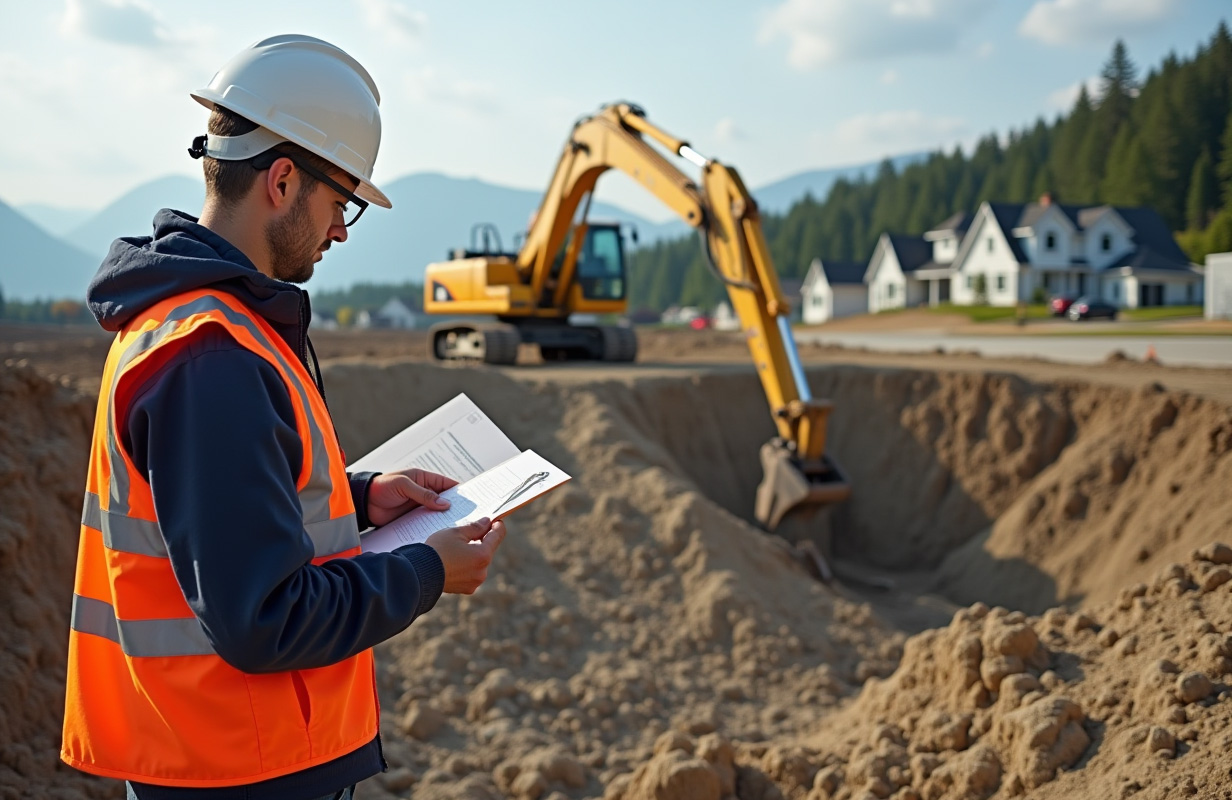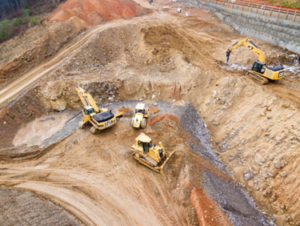Understanding the Basics: Concerning Geotechnical Engineering in Modern Construction
Understanding the Basics: Concerning Geotechnical Engineering in Modern Construction
Blog Article
The Relevance of Geotechnical Engineering in Attending To Ecological Challenges and Enhancing Construction Safety And Security
Geotechnical design offers as a foundation in the crossway of ecological stewardship and building safety and security, offering vital understandings into the behavior of soil and rock under different problems. By carrying out tactical website investigations and customized mitigation steps, geotechnical designers play a vital role in guarding both human lives and ecological integrity.

Duty of Geotechnical Engineering
Geotechnical engineering plays a vital function in the layout and building and construction of framework by dealing with the habits of dirt and rock products under numerous conditions. This field of design is necessary for recognizing the communication in between frameworks and the ground, which includes identifying the load-bearing capability of dirt, evaluating security, and forecasting possible negotiation or failing.
Geotechnical engineers are responsible for conducting website investigations, which include tasting and screening dirt and rock to collect information on their physical and chemical buildings. This info is important for designing foundations, keeping wall surfaces, and various other earth-retaining structures that guarantee safety and long life. In addition, geotechnical engineering educates the choice of appropriate building approaches and materials, therefore lessening risks associated with soil habits.
Additionally, the assimilation of geotechnical design principles into metropolitan planning and ecological management is essential for resolving difficulties such as ground contamination and groundwater management. By understanding geotechnical factors, engineers can create lasting options that boost the durability of framework against all-natural dangers, while additionally promoting ecological stewardship. Ultimately, the function of geotechnical engineering is important for accomplishing safe, durable, and eco mindful construction techniques.
Dirt Erosion Mitigation
Soil erosion postures a significant threat to both ecological stability and facilities honesty, affecting approximately 24 billion lots of fertile dirt lost yearly worldwide. This phenomenon is exacerbated by variables such as logging, urbanization, and bad farming methods. Geotechnical design plays a pivotal role in developing reliable dirt erosion mitigation approaches that guard both the atmosphere and construction projects.
One technique involves the application of disintegration control methods such as vegetation planting, which maintains soil with origin systems. In addition, the construction of preserving terraces and walls can effectively minimize surface overflow and safeguard vulnerable areas from erosion. Appropriate water drainage design is additionally important; it decreases water build-up and directs excess overflow away from critical frameworks.
In addition, geotechnical designers use soil stabilization techniques, such as the application of geotextiles and naturally degradable mats, to improve dirt communication and stop degradation - about geotechnical engineering. Regular tracking and analysis of erosion-prone sites make it possible for prompt treatments, making certain lasting sustainability. By incorporating these strategies, geotechnical design not just reduces the influences of dirt erosion however likewise adds to the strength of infrastructure versus ecological difficulties, inevitably cultivating a safer and more lasting developed environment
Groundwater Defense Techniques
Groundwater acts as a crucial resource for alcohol consumption water, agriculture, and commercial procedures, making its protection important for environmental sustainability and public health. Effective groundwater protection methods are vital in alleviating contamination threats and making certain the longevity of this resource.

Regular tracking of groundwater high quality is additionally vital, enabling early detection of contamination sources and promoting prompt removal initiatives. Using sophisticated modern technologies, such as geophysical surveys and remote sensing, help in determining potential threats to groundwater books.
Furthermore, public education and stakeholder interaction are important, fostering community assistance for groundwater defense initiatives. about geotechnical engineering. By integrating governing procedures, technical advancements, and community involvement, we can create an extensive framework that safeguards groundwater sources while promoting sustainable development and building and construction practices
Landslide Risk Administration
Landslides posture substantial dangers to both human security and facilities, making efficient risk administration approaches essential. Geotechnical engineering plays a vital role in recognizing, analyzing, and mitigating landslide dangers. An extensive understanding of slope security, soil mechanics, and hydrology is vital for creating reliable danger monitoring plans.
The initial step in landslide danger administration entails thorough site investigations, which consist of geological mapping and soil testing. These examinations aid engineers examine the capacity for landslides by recognizing critical variables such as slope angles, dirt composition, and water material. Using advanced modern technologies such as remote picking up and geophysical studies can boost the precision of these assessments.
Once dangers are determined, suitable reduction procedures can be applied. These might consist of engineering options such as retaining wall surfaces, Visit Your URL drainage systems, and slope stablizing methods. In addition, checking systems must be developed to spot signs of ground movement and changes in water degrees, enabling proactive treatments.

Enhancing Building Safety
Building sites frequently offer a myriad of hazards that can threaten worker safety and security and job integrity. Geotechnical engineering plays an essential role in boosting construction security by giving important understandings into subsurface problems. Through thorough soil and rock evaluation, geotechnical engineers can identify prospective risks, such as dirt instability, groundwater concerns, and seismic vulnerabilities, which may endanger the safety of building activities.
Applying geotechnical remedies, such as appropriate foundation style and the usage of preserving frameworks, mitigates these threats substantially. These solutions not only guarantee the stability of the structures being developed but likewise develop a much safer working atmosphere for construction personnel. Additionally, rigorous surveillance and analysis of website problems throughout the building and construction process are critical. Utilizing innovative innovations like ground-penetrating radar and inclinometer systems enables real-time data collection, enabling prompt treatments when dangers are found.
In addition, fostering a culture of security with training and adherence to established safety procedures even more boosts building and construction site safety and security. By incorporating geotechnical experience right into the planning and implementation stages, building and construction jobs can attain higher safety and security standards, inevitably shielding workers and making certain effective task conclusion.
Verdict
In conclusion, geotechnical design serves as a crucial self-control in dealing with environmental obstacles and promoting construction safety and security. Through efficient soil disintegration mitigation, groundwater security methods, and landslide risk administration, geotechnical designers add to the growth of durable infrastructure.
Geotechnical engineering offers as a keystone in the intersection of ecological stewardship and building and construction safety and security, supplying crucial insights right into the actions of dirt and rock under numerous problems. Geotechnical engineering informs the choice of appropriate building and construction methods and products, therefore lessening dangers linked with dirt habits.
Geotechnical design plays an essential function in creating effective dirt erosion mitigation approaches that protect both the click environment and construction tasks.
Additionally, geotechnical designers employ dirt stablizing strategies, such as the application of geotextiles and naturally degradable floor coverings, to boost dirt cohesion and stop degradation. With comprehensive soil and rock evaluation, geotechnical engineers can recognize prospective dangers, such as soil instability, groundwater concerns, and seismic susceptabilities, which read here might endanger the security of construction activities.
Report this page